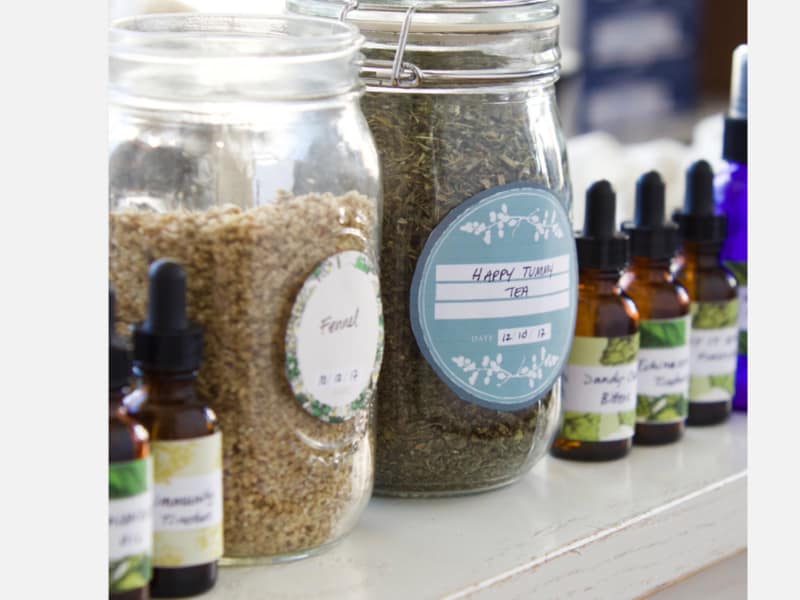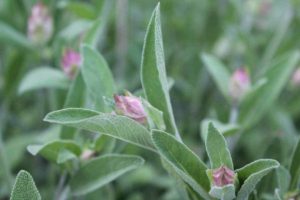For hundreds of years, plants have been known to have medicinal properties. In ancient times, medicines made from plants were the only medicines available. Today, of course, with modern medicine, things have changed.
The pharmaceutical industry is a multi-million dollar industry. We have access to so many new drugs that are constantly being researched and developed. Medical science has advanced tremendously in this field.
Medicines are associated with science, and we therefore often assume that if a product is called medicine, it, therefore, cannot be natural.
This is absolutely not true. While it is often possible to make your own herbal remedies at home, there are also many medicines made from plants. The fact that they are plant-based does not in any way minimize or reduce their credibility in the world of medicine.
Do Herbal Medicines Made From Common Plants Really Work?
Yes! Medicines that are made from common plants most definitely do work. There are many essential drugs that are plant-based and have proved to be both life-changing and life-saving.
Hundreds of years ago, before the advances of modern medical science, people turned to natural sources to treat their medical ailments. Various herbs and flowers were known to contain potent chemicals that could have a direct effect on certain aspects of a person’s well-being.
The roots and bark of some plants and trees were also found to be effective in treating certain conditions. Over the years, the practice of natural medicine has been studied and refined.
Many elements of plants that are known to have healing properties have become the basis for commercial medicines that are manufactured by large pharmaceutical companies.
What Medicine Is Made from Plants?

There are many well-known medicines, some of which you have possibly taken, or even use on a regular basis, that have their origins in plants. These are all products that have been carefully researched and studied for many years.
Their ingredients have been refined and processed, and their natural or herbal base components have been combined with other chemical substances, to facilitate and enhance their efficacy.
Five of the most common medicines made from plant-based substances are possibly sitting in your medicine cabinet right now. These medications include the following:
-
Aspirin
The main ingredient in Aspirin is salix, also known as salicylic acid. Salix is a powdery white substance that is found in the bark of the willow tree. Hippocrates, who was known as the father of modern medicine, discovered its medicinal benefits.
It is manufactured under many different brand names and is also available in generic form. This medicine has many uses in everyday medical practice.
Aspirin is commonly used as an analgesic. It is a very effective treatment for pain and is often prescribed for people who suffer from pain when recovering from surgery. It is also a popular treatment for headaches.
Aspirin has been proved to be highly effective as an antipyretic and is often given as a rapid way to bring down a high fever.
Many people who are at risk of heart disease have aspirin prescribed for them in a low dose, as a chronic medication. Studies have shown that it has anti-clotting properties, and is a highly effective blood thinner.
Taking a small dose of aspirin on a daily basis offers protection against the thickening of the arteries, which is the forerunner of heart disease. It also protects against blood clots that could be potentially fatal.
-
Codeine
Codeine is one of the most commonly prescribed medicines made from plants. Derived from a chemical that is extracted from the poppy plant, codeine belongs to the group of medicines that are known as opioids. It is used to treat various different ailments.
Codeine is an effective analgesic and is a common ingredient in many medications that are prescribed for severe pain. Produced by many pharmaceutical companies, under many different brand names, codeine-based painkillers are known to be highly effective.
Codeine is a common ingredient in many cough medicines. It acts on the nervous system, affecting the part of the brain that controls coughing. It is useful in treating a dry, unproductive cough.
A common side-effect of codeine is that it affects the digestive tract and the bowel, and can cause constipation. Therefore, it is often used to treat severe diarrhea.
Because codeine is a powerful drug that is usually available over-the-counter, without a prescription from a doctor, it is also one of those substances that are often abused by drug addicts. It contains certain chemicals that are habit-forming and addictive and needs to be used with caution.
-
Morphine
Like codeine, morphine is also made from chemicals found in the poppy plant. It is also an opioid and is a very powerful painkiller. Morphine works by acting on the central nervous system and suppressing the pain receptors in the brain.
Morphine is used to treat extreme pain in people who are suffering from different forms of cancer. It is highly effective as an analgesic and is often used to keep terminally ill patients comfortable during their final days.
Many surgical procedures have a very painful recovery period, particularly those surgeries that are orthopedic in nature and involve damage to the bones. A high level of post-surgical pain is often managed with morphine.
Because morphine is such a potent drug, it is only available on prescription. Dispensing of morphine is very carefully monitored. It is a drug that is often abused by drug addicts and has a high street market value among illegal drug dealers.
-
Camphor
Camphor is made from the cinnamomum camphora plant, which is also known as the camphor tree. This tree is native to certain parts of Asia. It is used in creams and lotions that are designed for topical application, to treat numerous troubling skin conditions.
Camphor oil has a very distinctive, potent smell. It is used to alleviate burning, itching, and other skin irritations.
There are many camphor products that have been banned, and it is illegal to sell them, because they are not manufactured under controlled conditions, and do not have approval. They are often packaged in containers without labels, making them difficult to identify clearly.
Camphor oil is an effective analgesic. It is often used as the main ingredient in topical creams that are used to treat localized pain. It stimulates circulation and is effective in the treatment of muscular aches and pains.
Camphor has strong antiseptic properties, making camphor-based ointments an effective treatment for minor skin infections. It is useful for treating small cracks and grazes on the skin.
Because of its strong scent, camphor is often used to treat congestion. It is important to note that it should not be ingested. A few drops of camphor oil sprinkled on a tissue, or on your pillowcase, is helpful in opening up the airways if you have a severe cold with a blocked nose.
The strong smell of camphor also makes it an effective mosquito repellant. Mosquitoes cannot tolerate the smell. A few drops of camphor oil in a saucer in your bedroom at night will prevent you from being bitten.
-
Pseudoephedrine
Pseudoephedrine, a potent drug with multiple uses, is made from the Ephedra plant. Ephedrine alkaloids are extracted from the plant, processed, and combined with other chemicals to make this medication.
Pseudoephedrine is produced by numerous pharmaceutical companies and is marketed under many different brand names. It is known to be a highly effective decongestant.
Congestion in the nasal passages causes a blocked nose, making it uncomfortable and difficult to breathe through the nose. This congestion is the result of blood vessels that have swollen and thickened.
Pseudoephedrine acts on receptors in the brain that shrink the blood vessels, reducing that blocked-up feeling. It is often prescribed to help alleviate the symptoms of sinus infections, which can cause severe congestion in the nasal passage.
Earache is often caused by a build-up of fluid in the eustachian tubes of the ear. This congestion causes both pain in the ear and, sometimes, temporary hearing loss. A few doses of pseudoephedrine can often clear up the problem.
A common side effect of pseudoephedrine is that it acts as a stimulant. For this reason, it is often taken by sportsmen and athletes as a means to enhance performance. It has been banned by WADA, the World Anti-Doping Agency, for its performance-enhancing ability.
Pseudoephedrine is a drug that should always be taken under the guidance and advice of a medical practitioner. It has quite a few known side effects, of which a few can be potentially serious.
Headaches, an increased heart rate, and elevated blood pressure are some of the side effects that have been reported.
Because it is a stimulant, pseudoephedrine can sometimes affect natural sleep patterns and cause insomnia. Therefore it is usually advisable to take it at least 6 hours before going to bed.
Summing It All Up
There are many modern-day medicines that are used to treat a variety of ailments and illnesses, that are plant-based. As with all other medicines, medicines made from plants should be used with caution, and only under the guidance of a medical practitioner.








Simply amazing, great utilization of resources.
Useful Content. Thanks a lot for the info!